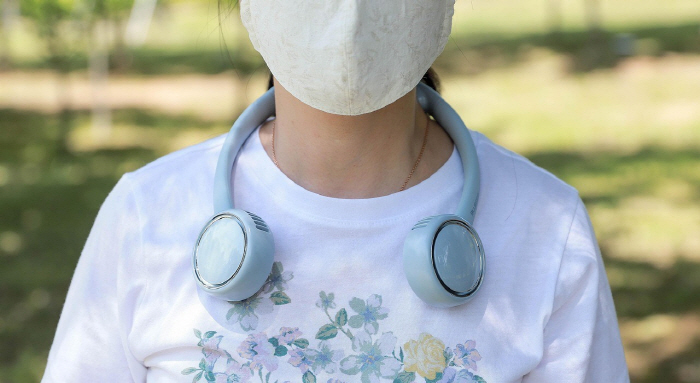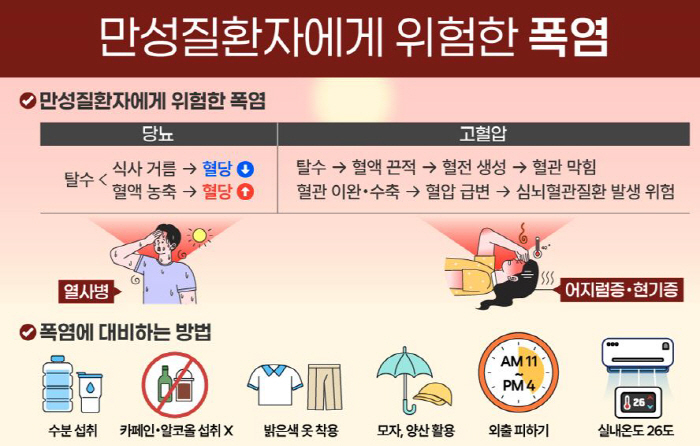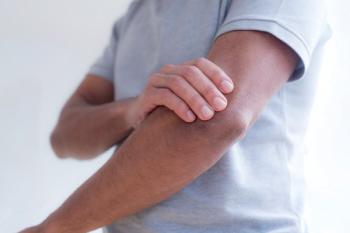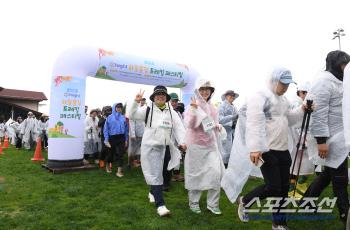In the heat of the cauldron, the blood vessel health of the chronically ill is in emergency...Blood sugar and blood pressure fluctuations are noted
Jul 25, 2025
|
Summer is a particularly dangerous season for chronically ill patients who have difficulty controlling their body temperature. Due to the heat wave, dehydration symptoms can increase blood sugar levels and cause blood clots to worsen the disease. In addition, when you are outside for a long time, you can be more easily exposed to thermal diseases than healthy people, which can lead to death in severe cases, requiring special attention.
"The higher the temperature, the higher the blood pressure and blood sugar, and the dehydration caused by sweating causes blood concentration, which puts a strain on blood vessel health," said Lee Hae-ri, an endocrine specialist at H Plus Yangji Hospital. "In particular, chronically ill patients should take a good look at their health conditions as blood pressure becomes unstable and heart burden increases, which can worsen the disease or cause dangerous complications."
◇ The incidence of complications of blood pressure fluctuations due to an increase in body temperature increases
When the body temperature rises due to the heat wave, our body repeats the relaxation and contraction of blood vessels to control body temperature. In this process, hypertensive patients have a higher risk of cardio-cerebrovascular disease as vascular elasticity decreases and rapid blood pressure fluctuations strain blood vessels. In order to lower body temperature, the heart beats more, and each time the body temperature rises by 1 degree, the blood extraction per minute of the heart increases by 3L. If the heart is strained, the risk of cardiovascular disease increases, and if blood is concentrated by sweat, the risk of blood clots increases, and the incidence of complications such as cerebral infarction increases.
Diabetes patients may experience dehydration and increase or decrease blood sugar levels when exposed to heat. This can lead to hyperglycemia or hypoglycemia, worsening complications. If you skip meals due to a lack of appetite in summer, hypoglycemic shock can also occur. In addition, if there are complications related to the autonomic nervous system, the body temperature control function is reduced, so it is easy to be exposed to heat stroke, a heat disease.
Patients with cardio-cerebrovascular disease are vulnerable to heat diseases due to increased heart rate and respiratory rate to recover dropped blood pressure when body fluid decreases due to sweat discharge, increasing heart burden and rapid dehydration. When kidney disease patients consume a lot of water at once in hot weather, swelling and hyponatremia may occur, resulting in dizziness, headache, nausea, and dizziness. Patients with low blood pressure should also be careful as the body expands peripheral blood vessels to lower body temperature and lowers blood pressure, which can lead to dizziness and decreased energy.
◇Drink enough water and avoid going out in the middle of the day
In summer, when the heat wave is raging, it is important to drink water steadily even if you do not feel thirsty. Drink about 2L of water a day often, and avoid caffeine and alcohol consumption, which raises body temperature and causes diuretic action and dehydration. Ion drinks are helpful to some extent, but they are high in sugar, so it is better to eat them properly, and if it is difficult to drink bottled water, it is also helpful to add cucumbers, lemons, and mint.
From 11 a.m. to 4 p.m., when the sun is hot, you should avoid going out as much as possible. When you go out, it is recommended to pack water, block the sun with hats and mass production, and wear bright colored clothes that absorb less heat. If you take a cold shower because it's hot after going out, the blood vessels expanded by heat can suddenly contract and blood pressure can rise, so take a lukewarm shower. It is recommended to keep the air conditioner temperature at 26 degrees Celsius, which is an appropriate temperature, to be careful of air conditioners, and to exercise lightly by walking and stretching in the morning and evening.
Specialist Lee Hae-ri advised, "If you suddenly have chest pain or chest tightness, or if your front of your eyes suddenly becomes depressed, you lose your balance and stagger, and you have headaches and dizziness, you should take emergency measures."
|
This article was translated by Naver AI translator.















